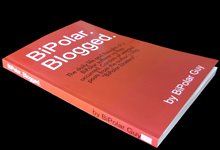Mood
"temporary state of mind or temper...prevailing atmosphere or feeling" - Collin's Paperback
"temporary frame of mind or emotional disposition." - Oldhams
I've always believed very strongly that if you really want to sharpen your understanding of a concept - go first to the dictionary. Over the years I've built up a sizeable dictionary collection.
There is nothing earth-shattering in the definitions of "mood" above. But I took it one step further. I also collect etymological dictionaries (dictionaries of word origins) and here I found something quite interesting about the mood concept. According to John Ayto's "Dictionary of Word Origins" at one point in time "mood" was related to "mode".
So I started thinking about this and discovered that this sheds a lot of light for me, a sufferer of mood disorders. "Mood" has always had a very passive connotation to it. Like, OK, so you're in a bad mood, let's tread around you carefully. But "mode" is far more active and shows how mood effects your cognitive and behavioural functioning.
I tried applying it to myself. Somehow to say "I am in 'Yeehaaa' mode" seems much more accurate than" "I am in a YeeHaa mood". Because when I am in aYeeHaa state it's so much more than just an emotional state. It is a completely different me, that thinks and acts in a completely different mode.
Sorry if this is all a bit academic, but I'm having a philosophical moment.
Anyhow, yesterday I was in kite-flying mode (I'm the one on the other end of the strings).







Huh. Never thought of it that way before.
ReplyDeleteNice to see that there is someone else who reads reference books.
ReplyDeleteThe idea of moods as modes makes perfect sense to me. We shift into moods and our entire behavior exudes/proceeds from them. They are the engine, the gear in which we drive.
And sometimes we're in the wrong gear, so we either go too slow or we run hot.